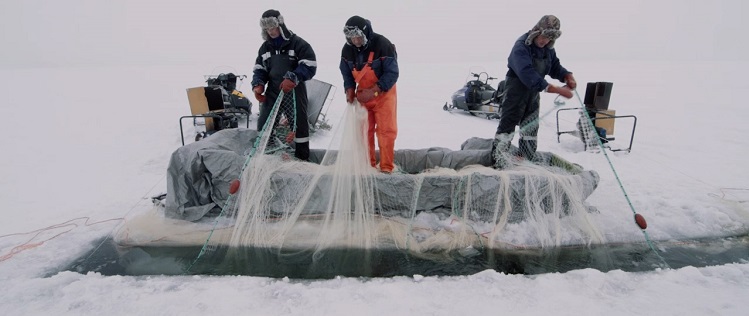$100,000 environmental prize winner announced

A project which promotes ecological restoration in Finland has won the prestigious US$100,000 St Andrews Prize for the Environment 2021.
The Prize is an environmental initiative led by the University of St Andrews that recognises global projects making significant contributions to environmental issues and concerns, with a focus on sustainability, conservation, biodiversity and community development.
The winning project, Snowchange Cooperative, is a network of indigenous and local-traditional communities working on cultural, environmental and science issues predominantly in Finland. Snowchange works to directly support programmes, mostly in the boreal and the Arctic, but also selectively globally, which advance indigenous cultural issues and wellbeing, rewilding and ecosystem restoration, as well as landscape-scale restoration of community lands across the north.
The 2021 Prize winner was announced live online at a virtual ceremony last night (Tuesday 5 October).

Tero Mustonen, Chairperson of the Snowchange Cooperative, said: “We bow humbly in receiving this Prize which we dedicate to the northern indigenous and community women who lead the Snowchange work.
“Rewilding landscapes in Finland using traditional knowledge and science matters for all of Europe because of the migratory bird flyways and large number of peatlands we can restore.
“Our work also ratifies Saami indigenous rights in practice, even though, unfortunately, they are still not recognised by Finnish Government.
“We hope the global society joins us in a broad alliance to protect the boreal forests and Northern ecosystems of Finland.”
Since its establishment in 1998, the Prize has awarded more than US$2 million in funding to environmental projects around the world, supporting a wide range of initiatives that address diverse topics including sustainable development, food security, recycling, health, renewable energy and community education. Entries to the Prize have been global, local and/or scalable, outlining how they will socially and economically impact the communities where they are based.
The Prize has provided crucial support to a diverse range of projects which have reduced human-animal conflict, promoted environmental justice, developed new solutions to reduce and eliminate waste, and championed urban regeneration.
Dr Hayaatun Sillem, Chair of the St Andrews Prize for the Environment Trustees and Chief Executive of the Royal Academy of Engineering, says: “In what has been a turbulent year for all, I am delighted to award the 2021 Prize to such a globally significant project making a change in people’s lives. 2021 is a milestone year for addressing the climate crisis and it is heartening to see the sheer number and diversity of projects around the world looking to address the environmental challenges that affect us all.
“I would like to congratulate this year’s winner, Snowchange, who really impressed us with their integrated approach to working with indigenous communities and the global scientific community to protect a vital ecosystem. We believe this is a very powerful approach that has the potential to deliver impact at scale, and we commend the talented and passionate team who have worked so hard to bring the project to life.”
Professor Sally Mapstone, Principal and Vice-Chancellor of the University of St Andrews, added: “The Snowchange Cooperative is an outstanding winner of the St Andrews Prize for the Environment, addressing the very real issues of the need to protect ecosystems while working in partnership with indigenous and local-traditional communities.
“The St Andrews Prize for the Environment provides a platform for global projects with unique ideas and approaches dedicated to tackling the environmental crises at a local level, perhaps where the impact of the climate emergency is felt the most, but in ways designed to be scalable and replicable. Projects such as Snowchange empower communities and help them to create a more sustainable way of life.
“The University of St Andrews is renowned for its leadership on critical global issues and is at the forefront of innovative solutions to the global climate emergency, the existential crisis of our time. The Prize, now in its 23rd year, is a testament to our commitment to tackling the environmental issues that impact us all.”
This year’s runners-up, who will receive US$25,000, were:
- Planet Indonesia – conserving at-risk ecosystems through village-led partnerships
- Cities Without Hunger – jobs, income, providing food: everything starts with a garden.
For more information about the Prize, its history and previous winners visit the website.
Category Awards